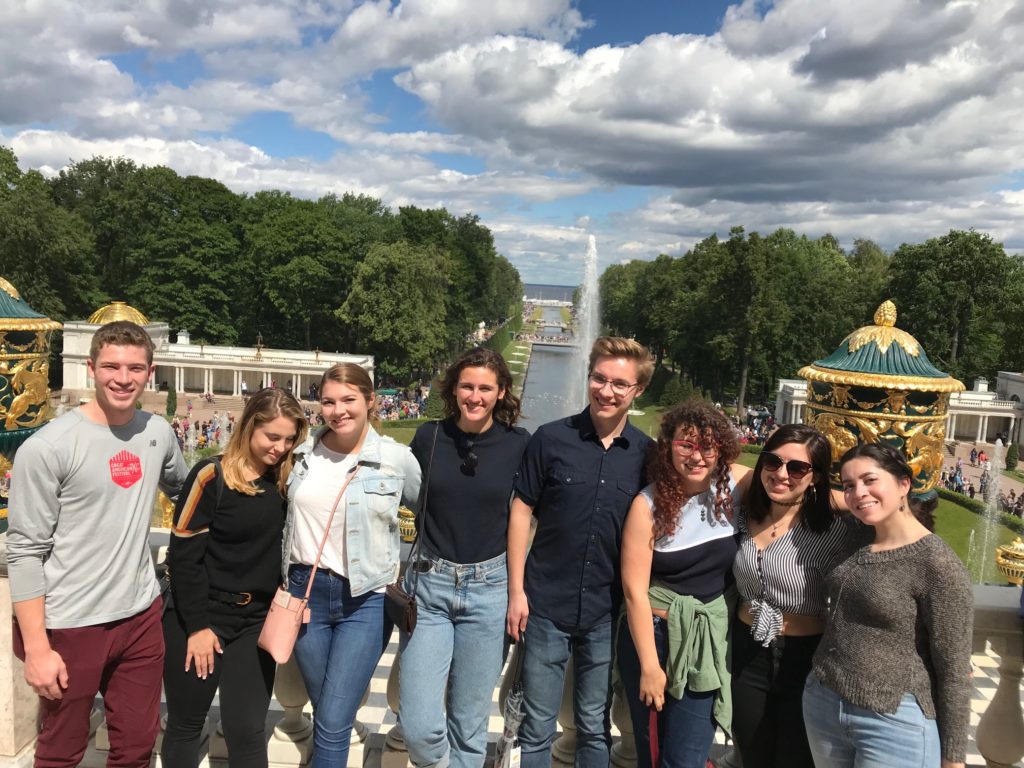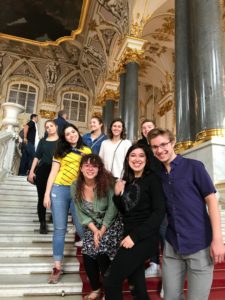Every summer, a small group of students from AU and beyond gets the opportunity to embark on a life-changing trip to Russia. Their guide is Anton Fedyashin, an associate professor in the History Department. Since 2012, Prof. Fedyashin had led 8-10 students to St. Petersburg and Moscow to explore the history, culture, and literature of Russia. The program is fully funded by the Carmel Institute, which covers round-trip airfare, lodging, entrance fees to museums and concerts, breakfast, and dinner for each lucky student. The only cost incurred by participants is their daily lunch.

Admission to this summer program is competitive: of the approximately forty applications that are received each year, no more than ten are selected by Prof. Fedyashin to go to Russia. In addition to GPA, applicants must also write two essays explaining how a visit to Russia fits within their academic or professional plans. Prof. Fedyashin then interviews each student personally to ensure his or her suitability for the trip. Their reward is ten days of intense sightseeing, readings, and discussion with Prof. Fedyashin on the streets of St. Petersburg, Moscow, and beyond. Each trip is organized around a specific theme, which changes every year. In the past, students have gotten to learn about “Dostoevsky’s Russia” (2012), “Romanov Russia” (2013), “Literary Russia” (2014), “Twentieth-Century Russia” (2015), “Musical Russia” (2016), “Revolutionary Russia (2017), and “The Human Figure in Russian Culture” (2018).

According to Prof. Fedyashin, participants come away from this experience with a radically different view of Russia than they receive from the mainstream media. “They are struck by how modern and dynamic Moscow and St. Petersburg are,” Fedyashin said, “how warm the people are, how proud the Russians are of their history and culture, and how much effort they put into preserving all these things.” Elena Vernikos, an AU senior in the School of Public Affairs, admitted to knowing little about Russia before applying to the program. “At the beginning of our journey I had no idea what to expect,” Vernikos said. Having long viewed U.S.-Russian relations through an “us vs. them” lens, Vernikos came away from her trip with a more “humanized” view of Russian society. “I feel lucky to have had this experience, and also grateful that I now have a different, more nuanced view of Russia and its history, culture, and people.”
This was the goal of the Carmel Institute from the beginning, Fedyashin notes. “I’m very grateful to Ms. Carmel for funding the Carmel Institute because it allows American students to see Russia as it is, not as it is not or as it should be. And that is a very important component of informed dialogue and intelligent foreign policy.”